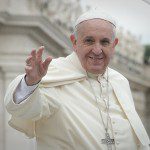In recent years, conversations have taken us to Palmyra, New York, Nauvoo, Illinois, and Wheaton College. A small number of individuals have consistently participated in almost all of the gatherings and a much larger number have come and gone as their schedules and interest have dictated. Average total group size has usually been about 12-15 but perhaps as many as fifty different scholars have participated at one time or another.
Larger, public conferences, both in Utah (at BYU and several other venues) and at Fuller have also been organized by individual participants in our conversations based, at least in part, on the success of and interest generated by the more private conversations. Additionally, Johnson and Millet have re-enacted Mormon-Evangelical dialogues in dozens of settings around the country and occasionally abroad, beginning about eight years ago when Johnson founded and "Standing Together," an Evangelical Christian ministry based near Salt Lake City, with the twin goals of uniting Evangelical pastors and churches throughout the state, who often feel quite beleaguered in the midst of the Mormon "colossus," and to continue what Mouw, borrowing from George Bush, Sr., likes to call "gentler, kinder" kinds of religious conversation with Latter-day Saint friends and acquaintances both privately and in the public arena.
Additional publications have emerged from several of these various interactions, dialogues and conferences, most notably Salvation in Christ: Comparative Christian Views, a publication of the Religious Studies Center of BYU in 2005, with contributions from LDS, Evangelical, liberal Protestant, Roman Catholic, and Greek Orthodox authors; Claiming Christ: A Mormon-Evangelical Debate by Robert Millet and Gerald McDermott (Brazos, 2007) and Bridging the Divide: A Continuing Conversation between a Mormon and an Evangelical (Monkfish, 2007).
Over the years, I have been involved in a fair number of different kinds of interfaith dialogues or conversations. AAR itself provides the milieu for some. What has struck me as particularly consistent and helpful about all of the Evangelical-Mormon events in which I have participated are two key features. On the one hand, as in almost all forms of ecumenism, one cannot simultaneously engage in overt proselytizing and dispassionate description and analysis of one's own or another's belief system. The kinds of conversations initiated on someone's front porch when either Mormon missionaries or Protestant evangelists engage in door-to-door neighborhood visitation campaigns rarely lead to deep and balanced insights as to what the other believes (or, in the 21st-century Western world, even to very many converts). If anything, such encounters may today more often than not be counterproductive to mutual understanding and good will.
On the other hand, precisely by agreeing to bracket explicitly evangelistic overtures, representatives of both our faith communities have shared in great detail our convictions across the full range of theological and ethical concerns that both unite and divide us. Personal passions for our faith commitments have scarcely been absent, and rationales for why we believe what we believe and why we wish others shared those beliefs have been abundantly clear.
This is in sharp contrast to so many other forms of interreligious dialogue in which anything that even begins to hint of apologetics for one's faith is censored as an egregious violation of the ground-rules for conversation. I have never sensed in our gatherings any of the at-best-artificial and at-worst-destructive separation of religious studies from theology so endemic to the North American religious academy. No questions are off limits when we gather and no answers are demeaned, though we all understand that we are far more likely to gain greater mutual understanding by asking certain questions rather than others and that we can expect certain answers to meet with more objections or resistance than will other ones.
In many instances, we have also gotten to know each other well enough to become genuine friends. I now feel a moral obligation more than ever when I am involved in a conversation about Mormonism with no Latter-day Saints present to make sure that I (and others!) represent them fairly and accurately, because the participants in the conversation, whether or not they realize it, are speaking about some of my good friends. The same is true for me in the more formal contexts of teaching, writing, and being interviewed.
Not surprisingly, our dialogues have not proceeded without any hiccoughs. There have been occasions when conversations have become passionate and pointed enough that feelings have been hurt and some of us have wondered if we had reached the end of our endeavors. Statements have been issued, publications have appeared, and participation in events canceled by several of us that have left others confused and troubled by the motivations behind the apparent duplicity.




